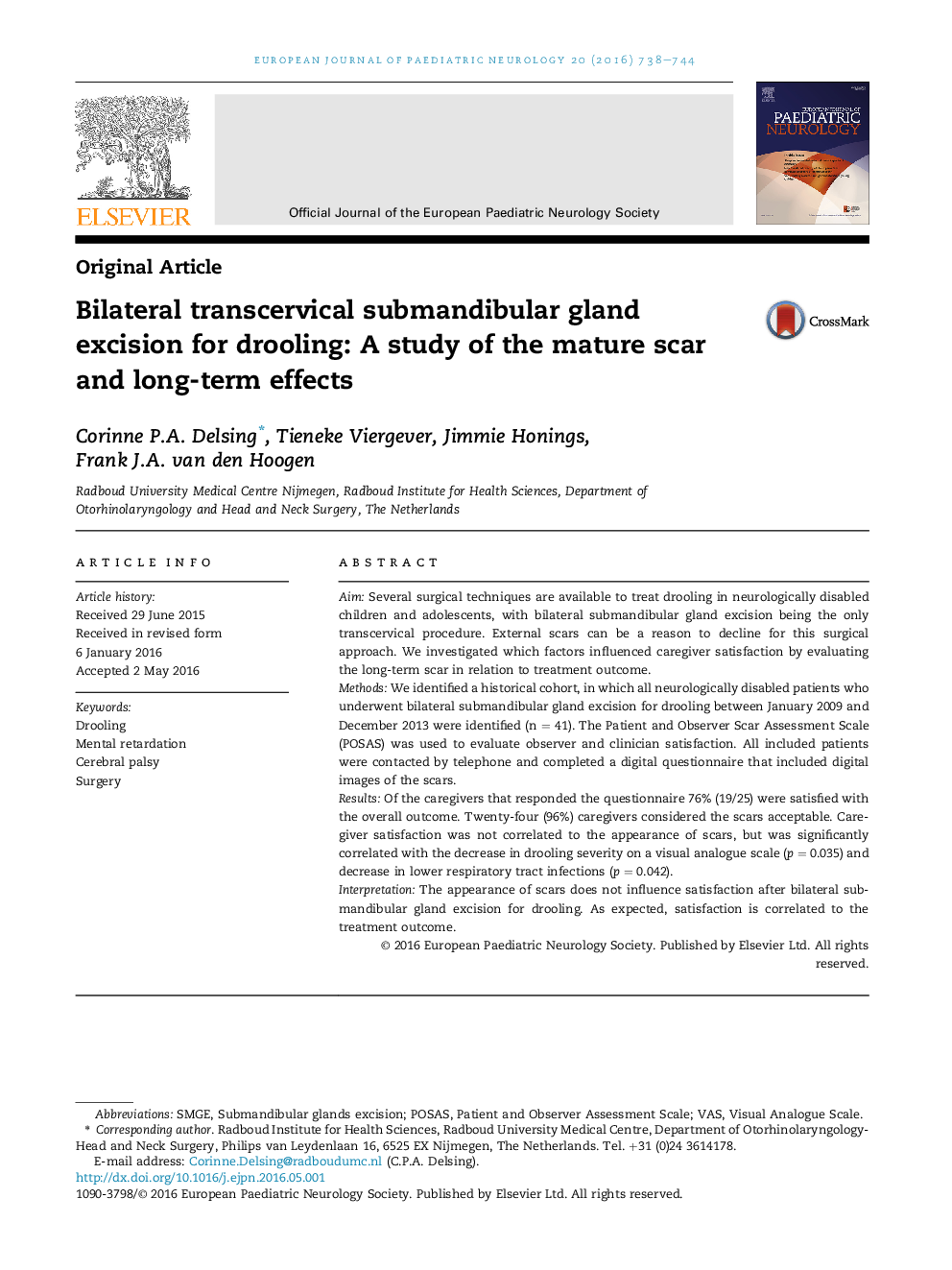| Article ID | Journal | Published Year | Pages | File Type |
|---|---|---|---|---|
| 3053474 | European Journal of Paediatric Neurology | 2016 | 7 Pages |
•Scars are no objection for surgical treatment of drooling in neurological impaired children.•Bilateral submandibular gland excision offers good long-term results for drooling.•Caregiver satisfaction was not correlated to the appearance of scars, but was significantly correlated with the decrease in drooling severity on a visual analogue scale and decrease in lower respiratory tract infections.
AimSeveral surgical techniques are available to treat drooling in neurologically disabled children and adolescents, with bilateral submandibular gland excision being the only transcervical procedure. External scars can be a reason to decline for this surgical approach. We investigated which factors influenced caregiver satisfaction by evaluating the long-term scar in relation to treatment outcome.MethodsWe identified a historical cohort, in which all neurologically disabled patients who underwent bilateral submandibular gland excision for drooling between January 2009 and December 2013 were identified (n = 41). The Patient and Observer Scar Assessment Scale (POSAS) was used to evaluate observer and clinician satisfaction. All included patients were contacted by telephone and completed a digital questionnaire that included digital images of the scars.ResultsOf the caregivers that responded the questionnaire 76% (19/25) were satisfied with the overall outcome. Twenty-four (96%) caregivers considered the scars acceptable. Caregiver satisfaction was not correlated to the appearance of scars, but was significantly correlated with the decrease in drooling severity on a visual analogue scale (p = 0.035) and decrease in lower respiratory tract infections (p = 0.042).InterpretationThe appearance of scars does not influence satisfaction after bilateral submandibular gland excision for drooling. As expected, satisfaction is correlated to the treatment outcome.
